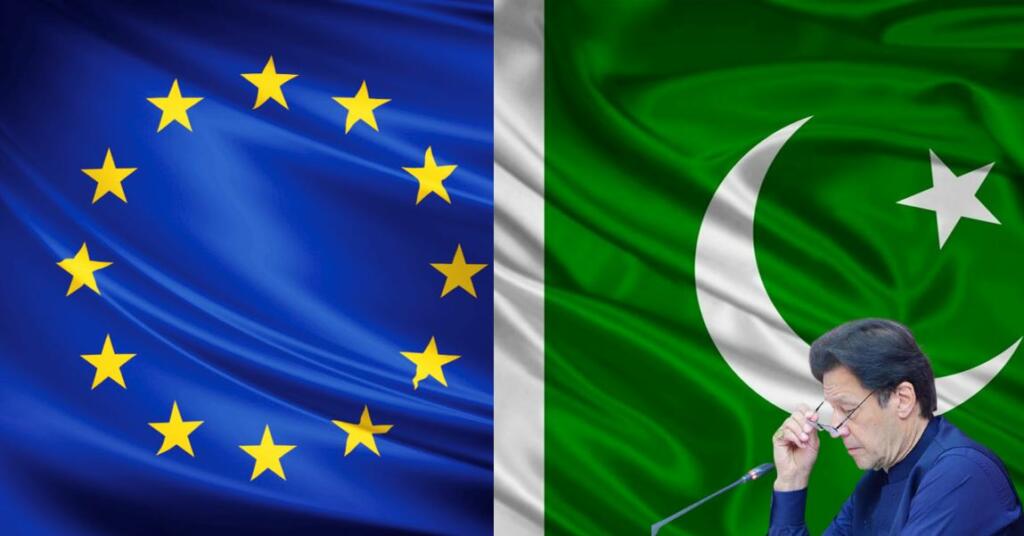- The European Union has called for an immediate reassessment of the EU-Pakistan trade regime that was granted back in January 2014
- The ‘GSP+’ status allowed Pakistani goods to enter the bloc with an exemption to the import duties
- Pakistan’s role in resuscitating the Taliban’s tyranny is largely overlooked by the Western media and policymakers. However, it seems that the European Union has had enough of Pakistan’s menace now.
Pakistan’s adventurism in Kabul has left its fate hanging in balance as the European powers now increasingly look forward to coming down heavily on their trade ties with the South Asian country. As reported by news agency ANI, the European Union has called for an immediate reassessment of the EU-Pakistan trade regime that was granted back in January 2014. Pakistan’s brazen support to the Taliban in Afghanistan and its continued violations of human rights in its territories are believed to be the two major factors behind the EU’s renewed calls for a stringent trade policy towards Pakistan.
The EU and Pakistan hammered out a trade agreement in 2014 that bestowed Pakistan with Generalized System of Preference (GSP+) status. The ‘GSP+’ status allowed Pakistani goods to enter the bloc with an exemption to the import duties. Pakistan bagged tremendous trade opportunities after reaching the arrangement with the EU, whose exports to the bloc have seen the rise of a whopping 65 percent in the past six years. As per the reports, the EU is one of Pakistan’s most important trading partners with accounting for 14.3 per cent of Pakistan’s total trade in 2020 and absorbing 28 per cent of the country’s exports, majorly in the textile and clothing sector.
Read More: ‘If you want our friendship, declare Pakistan a Sharia state,’ Taliban’s “offer” to Pakistan
In return for all these hefty economic benefits and enormous trade opportunities, Pakistan was asked to ratify and effectively implement 27 core international conventions on human and labour rights, environmental protection, and good governance. Instead, Pakistan surreptitiously kept enforcing its draconian blasphemy laws, upped its violations of fundamental human rights and brazenly threw its weight behind the Taliban regime in Afghanistan.
Last year, the EU’s 3rd Biennial Assessment of GSP revealed that Pakistan enjoyed the perks of its special trade relationship with the bloc while keeping itself involved in grave violations of human rights simultaneously. The report underlined how the blasphemy law in Pakistan has been disproportionately used to exploit minorities and to incite harassment and violence against the accused. This led to the appeals to the European Commission and the European External Action Service (EEAS) to “immediately review Pakistan’s eligibility for GSP+ status in light of current events”.
Now, as the Taliban ensconces itself in Afghanistan with covert support from Islamabad, the EU seems determined to punish Pakistan with its trade sanctions and stringent economic policies. The Taliban’s return to the fray has been widely condemned by the European leaders that even risks blighting the close relationship between the US and Europe. However, Pakistan’s role in resuscitating the Taliban’s tyranny is largely overlooked by the Western media and policymakers. However, it seems that the European Union has had enough of Pakistan’s menace now.
Pakistan thought of usurping Afghanistan’s abundant natural resources through the Taliban and the vast network of its proxies operating on Afghan soil. However, it has merely remained Pakistan’s wishful thinking so far. The Taliban is now at the helm of affairs in Afghanistan and carrying out wide strides to forge closer strategic ties with Qatar, Turkey, and China. The fact that all these nations have deeper pockets than Pakistan is more than enough for the Taliban to put its ties with Pakistan on the backburner. Essentially, Pakistan is itself living on tenterhooks owing to its fragile economy and the Taliban may have no qualms in ditching it soon.
Read More: Mullah Baradar hates Pakistan and with Qatar’s support, he will abandon it
And now the European Union’s call for actions against Pakistan has added insult to its injury in incredible proportions. Its Taliban bet has gone bust spectacularly and it’s all set to pay a dear price for its unwarranted venture in Afghanistan.
